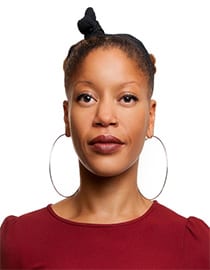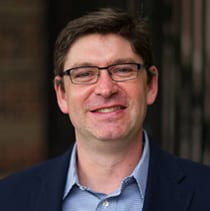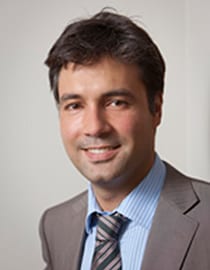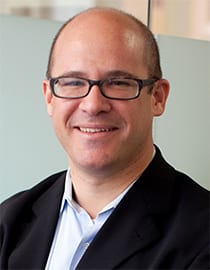By Andrew Cohen
Berkeley Law has hired an impressive roster of nine new faculty members. While they span a huge range of practice-area and doctrinal expertise, a unifying thread is their passion for teaching—and for their new home.
“It’s really exciting to have so many terrific new faculty members choosing Berkeley Law,” Dean Erwin Chemerinsky says.
Professor and former dean Christopher Edley, Jr. calls the number and pedigree of the appointments “a singular accomplishment in the recent history of American law schools. It’s a thrilling time to be teaching at Berkeley Law. Apparently, others know that, too.”

Khiara M. Bridges spent nine years as a professor at Boston University School of Law, where she also was the school’s associate dean for equity, justice, and engagement. The author of three books and numerous law review articles, she is a prolific scholar on race, class, and reproductive rights and justice.
Bridges graduated valedictorian from Spelman College—earning her degree in three years—before getting her law degree and a Ph.D. in Anthropology from Columbia. A classically trained ballet dancer, she sits on the board of the National Advocates for Pregnant Women and co-edits a reproductive justice book series published by UC Press.
“I’ve admired Berkeley Law’s faculty from afar since I joined the legal academy,” says Bridges, who will teach Family Law, Criminal Law, and a Reproductive Rights and Justice seminar. “I jumped at the chance to make these folks my colleagues.”

Jonah Gelbach comes from a professorship at the University of Pennsylvania Law School, and has taught students in law, economics, business, and public policy programs at the J.D., Ph.D., M.B.A., and undergraduate levels.
A director of the American Law and Economics Association and co-editor of the Journal of Law, Economics, & Organization, Gelbach enrolled in law school at 38 after 12 years as an economics professor. He has published in many top law and economic journals, with academic interests including civil procedure, evidence, statutory interpretation, and applied microeconomics.
“There are so many areas in which Berkeley Law excels … and the university-wide community of economists is among the very best in the world,” says Gelbach, who will teach Civil Procedure and Legislation next school year. “As an economist myself, I’m delighted to be able to be part of that community. Plus, the weather and views are pretty good.”

David Singh Grewal was a professor at Yale Law School and held a cross-appointment in the Yale political science department. A Bay Area native “delighted to be returning home,” his interests include legal and political theory, international trade law, intellectual property law, and law and economics.
Grewal has published articles in leading law journals and major newspapers, and will publish his second book next year. The winner of three teaching excellence awards, he earned his undergraduate and Ph.D. degrees from Harvard and his J.D. from Yale.
“The decision to come to Berkeley was made all the easier thanks to Erwin Chemerinsky, an extraordinary lawyer, academic, and administrator,” Grewal says. “It’s wonderful to see the Berkeley Law faculty being renewed under Erwin’s leadership. The chance to be part of that was simply too good to pass up.”

Orin Kerr, a renowned criminal procedure and computer crime law scholar, says Berkeley has “probably the best law school in the country for the study of law and technology. Most of my research and teaching is about technology law, so it was a natural fit. I’m excited to learn from Berkeley’s outstanding faculty, and to meet its legendary students.”
Arriving from a professorship at the University of Southern California Gould School of Law, Kerr previously taught at George Washington Law School and won its Outstanding Teaching Award in 2009. More than 3,000 academic papers and 350 judicial opinions have cited his articles, seven of which in U.S. Supreme Court opinions. Chief Justice John Roberts appointed him to serve on the Advisory Committee for the Federal Rules of Criminal Procedure in 2013, and on the Judicial Conference’s committee to review the Criminal Justice Act in 2015.
With degrees from Princeton, Stanford, and Harvard, Kerr clerked for Supreme Court Justice Anthony Kennedy. Before teaching Computer Crime Law in the spring, he will lead a fall seminar entitled Encryption Workarounds, exploring how the government tries to bypass encryption in criminal investigations.
“Imagine the government seizes a person’s cell phone, but it’s locked,” says Kerr, who has testified six times before Congressional committees. “The government has a warrant to search the phone, but they can’t get in because the device is encrypted. What can the government do to unlock the phone? … There are a lot of hard legal issues and tough technological questions raised by this problem, and we’ll delve into all of them.”
The law school has also hired five junior faculty members with stellar credentials:
Abhay Aneja completed his J.D. at Stanford and is finishing his Ph.D. at UC Berkeley’s Haas School of Business. He uses quantitative social science tools to study how political rights and criminal justice institutions shape inequality. A former Fulbright fellow who will join Berkeley Law in 2020, his research was presented at this year’s American Economics Association Annual Meeting.
Rebecca Goldstein recently received her Ph.D. from Harvard’s Department of Government. Her main research aims to understand the politics of criminal justice policy, and she has taken on projects relating to racial and ethnic politics, bureaucratic politics, and policy evaluation. Goldstein’s work has appeared in or is forthcoming in the American Journal of Political Science, Urban Affairs Review, and the Yale Law Journal.
Jonathan Gould is completing his Ph.D. in Harvard’s Department of Government and graduated from Harvard Law School, where he was president of the Harvard Law Review. He writes and teaches in public law, with a focus on the legislative process. Gould has worked as a law clerk on the federal court of appeals, at the Department of Justice’s Civil Rights Division, and at the Public Citizen Litigation Group.
Manisha Padi, a recent fellow and lecturer at the University of Chicago Law School, studies consumer financial contracts with a focus on household debt and retirement income. She has a J.D. from Yale Law School and a Ph.D. in economics from M.I.T. Padi’s work has been widely presented at law and economics conferences and has been cited in Bloomberg and by the Securities and Exchange Commission.
Rebecca Wexler, who clerked for federal judges Pierre Leval (Second Circuit Court of Appeals) and Katherine Polk Failla (Southern District of New York), is a rising authority on digital evidence, information law, privacy, and criminal justice. She has degrees from Harvard, Cambridge, and Yale, where she won three law school best paper awards. Her work has appeared in the LA Times, New York Times, Washington Monthly, Slate, and on National Public Radio.
Dean Chemerinsky observed, “All of these new faculty members promise to be great teachers and great scholars. I am very grateful to Professor Bertrall Ross, who chaired our Faculty Appointments Committee, and to all of our faculty who worked so hard to recruit our new colleagues to Berkeley Law.”